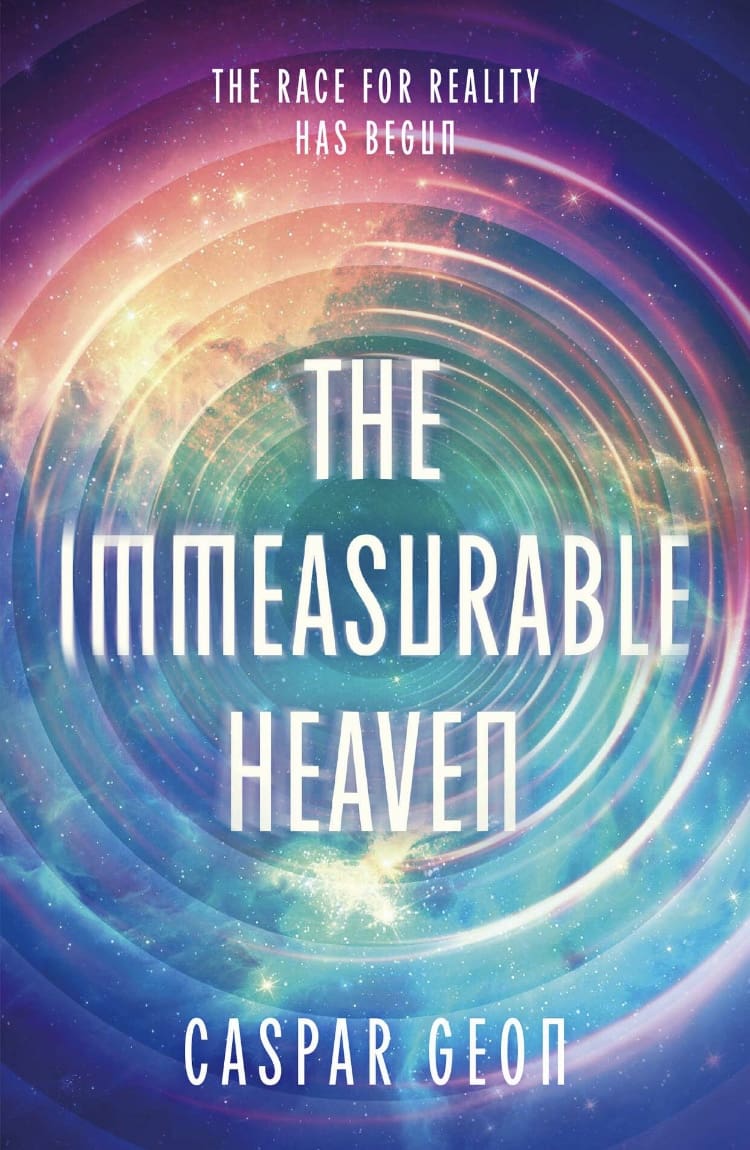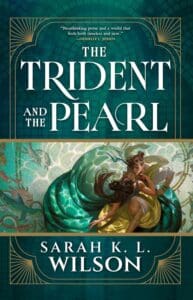
Synopsis
The Race for Reality Has Begun.
The galaxy of Yokkun’s Depth has been settled since time immemorial. There is only one frontier left, and it’s a one-way journey: to pierce the skin of existence and delve the countless younger universes beneath.
Running through these universes is the fabled Well, a fissure formed in the distant past into which horrors have been flung for millions of years. Amongst their number was an impossibly ancient sorcerer, cast down to the wastelands of a thousand apocalyptic worlds, never to return.
Until now.
Whirazomar is crossing the stars in the belly of a sentient spore, hoping she can make it to the Well before her masters’ rivals realise what she’s hunting: somewhere far below them, a hapless explorer has drafted a map of reality. A map that the exile is sure to seek out. A map so valuable that a kaleidoscope of beings will run the gauntlet of every universe to get it, even at the cost of their lives.
Review
You’re not ready for this book. The Immeasurable Heaven is a stunning ode to the weirdness living inside us that’s just waiting to be discovered, one layer at a time.
To say this book is inventive is like saying the Mona Lisa is a portrait. It’s true, but it doesn’t really scratch the surface. Caspar Geon has thrown restraint out of the window. There’s more imagination in some of the sentences of this novel than there are in entire books.
The space opera subgenre has been mined a LOT and you might feel like the most original space stories have already been told. 2001, Foundation, Star Trek, Star Wars, Alien, Iain M. Banks’ The Culture series. They’re classics that get recycled over and over, setting the tropes that inform what stories in space can and should be. But there’s nothing recycled about The Immeasurable Heaven. You’ve never read a story like this. It’s new. It’s fresh. It’s wild. It’s exciting. It’s full. It’s mad. It’s amazing.
Let’s start with the characters. There’s not a human in sight. That means there are no cheat codes here. No familiar points of reference. No pop culture humour. No throwaway relatability to ground you in a new reality. There’s just you and the weirdest creatures navigating the weirdest worlds, and all the while you’re trying to figure out why it doesn’t feel weird to read about them. Because that’s what makes this book work — you connect with the characters despite how alien they are since the realities they plunge into are as weird to them as they are to us.
In terms of the world, it operates on a genius system of layers that creates an instant hierarchy to the multiverse. The top layers of reality are reserved for the elite. But you can choose to drop down into a lower plain of existence where the worlds are steadily more chaotic and criminal. The rules of physics change with every layer, altering bodies and planets and shapes and species and everything else you can think of. There’s no way back up — only one way to go, and that’s down. And somehow spreading through the layers of these realities is a massive well, to which every character seems to be heading.
In terms of plot, you’ve got one character hitching a lift to the well inside the stomach of a massive sentient spore, and the reason for their trip is so they can hear a multiverse-spanning scream that’s echoing up through realities. You’ve got another character banished to the lowest depths of realities trying to find an impossible way back up to the top. And then you’ve got a cartographer who’s mapping the layers of realities as they travel downwards through them.
Each of these strands is packed with more ideas than you can shake a hundred billion sticks at. The way they coalesce is thought-provoking and ingenious. It takes its time to get there, but it’ll leave you buzzing as well as thinking.
You can see it all as allegory. You can search for hidden meanings and introspection in every nuanced detail, seeing depths that touch on the complexity of our inner selves. Or you can take a step back and try to digest the awesome scale of what’s been accomplished here. In terms of multiverse mayhem — this is the one to beat.
The style is literary but accessible. You won’t have difficulty picturing what’s going on. You’ll just have fun.
If you’re a sci-fi nerd, this book is necessary reading. If you like aliens, this book will blow your little green antennas off. If you want to read a space book that treats space like the inhuman, weird place it is, I thoroughly recommend you make time to travel into The Immeasurable Heaven. It’s a well of ideas that inverts the way a well should work. You don’t draw from it. You let it draw from you.
Congratulations, Caspar Geon. You wrote the most bonkers and brilliant space opera ever, and you took me to places that are simply beyond measure. Heaven to read. Heaven to imagine. Otherworldly and utterly brilliant. It’s so good, you’ll want to scream about it loud enough to be heard in the countless layers of worlds above.







Leave a Reply